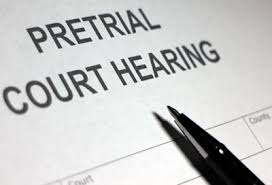Pre-Trial

Once a suspect is arrested or voluntarily appears before the ICC, the case enters the Pre-Trial phase, overseen by a Pre-Trial Chamber of three judges. This phase determines whether the case has enough evidence and legal basis to proceed to trial.
Pre-Trial Procedures
The Pre-Trial Chamber conducts several key steps to ensure the case is procedurally correct and justified:
-
Identity and Rights Verification
Judges confirm the suspect’s identity and verify that arrest and detention procedures respected the suspect’s rights under international law. -
Confirmation of Charges Hearing
The Prosecution presents evidence showing there are substantial grounds to believe the suspect committed the alleged crimes. This is a higher threshold than the preliminary examination. -
Defense Challenges
The Defense may raise challenges related to:- The legal basis for the charges
- The admissibility of the case (e.g. due to national proceedings)
- The jurisdiction of the ICC (territorial or personal)
Decision-Making by Judges
Following the hearings:
- Each judge independently drafts a legal opinion.
- A majority decision is issued to confirm, decline, or modify the charges.
- A minority opinion may be recorded, offering a dissenting view.
- Only evidence deemed admissible under ICC standards is considered.
If the charges are confirmed, the case proceeds to the Trial phase. If not, the case may be dismissed or returned for further investigation.
Roles in the Simulation
-
Pre-Trial Judge 1, 2, & 3
Each judge assesses the case independently and contributes to the final majority (or minority) ruling. -
ICC Prosecutor 1
Presents the charges and provides supporting evidence. -
ICC Prosecutor 2
Responds to defense objections related to admissibility and jurisdiction. -
Defense Lawyer 1
Challenges the factual basis and credibility of the charges. -
Defense Lawyer 2
Argues the case should be dismissed due to admissibility or jurisdictional issues.